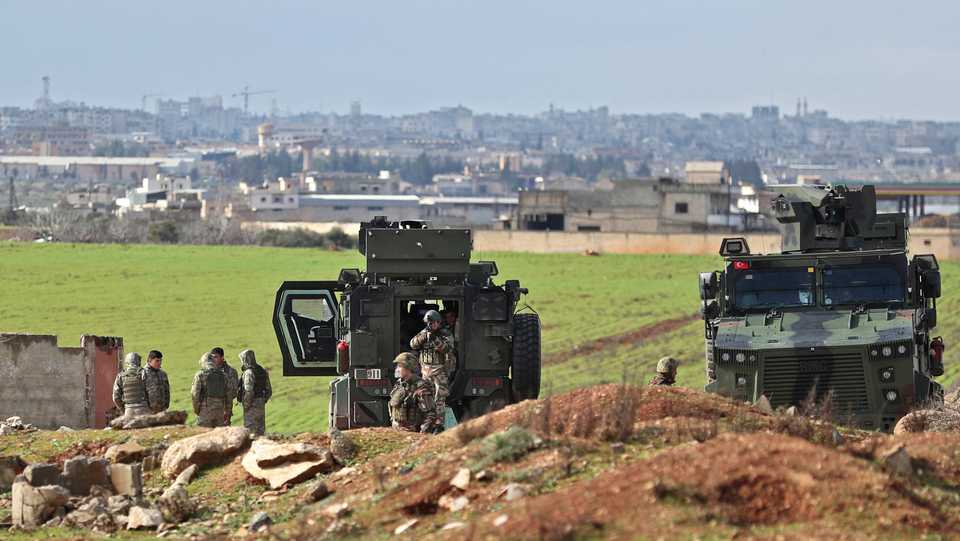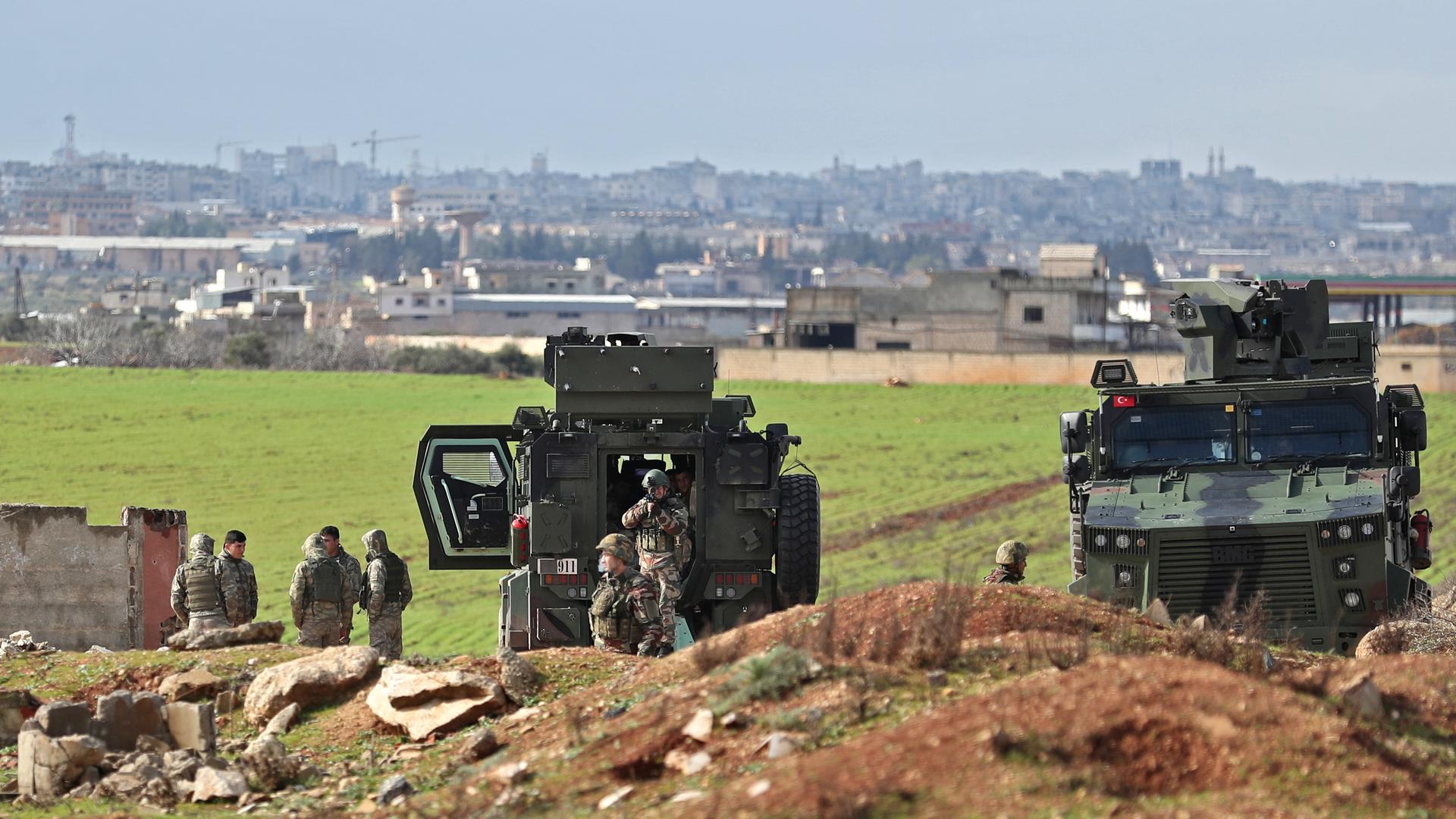
Turkey will change tack in northwestern Syria if agreements over Idlib, an opposition bastion, continue to be violated, the country’s defence minister warned in remarks published on Sunday.
“If the agreement kept being violated, we have Plan B and Plan C,” Defence Minister Hulusi Akar said, in an interview with the Hurriyet newspaper.
“We on every occasion say ‘do not force us, otherwise our Plan B and Plan C are ready’.”
“If the regime forces are not withdrawn by the end of February, we will take action,” he said.
He did not give details but referred to Ankara’s military campaigns in Syria since 2016.
Ceasefire deal
Turkey and Russia have brokered a ceasefire for Idlib where Syrian regime forces backed by Russian air strikes have pressed ahead with an offensive to retake the province from militant and rebel groups.
As part of a 2018 deal with Russia, Turkey set up 12 observation posts in Idlib and Turkish security sources said this week three of them have now been encircled by forces loyal to regime leader Bashar al Assad.
Turkish President Recep Tayyip Erdogan has given Damascus until the end of the month to pull back from the outposts and urged Moscow to convince the regime to halt its offensive.
Since Friday, Turkey has shipped large convoys of vehicles carrying commandos, tanks, and howitzers to shore up its military posts in Idlib. Eight Turkish soldiers were killed on Monday by regime shelling prompting a response by the Turkish army. In response, Ankara said it hit more than 50 regime positions eliminating more than 70 regime personnel.
“Our observation posts there will remain in place within the agreement,” Akar said.
Turkey keeps on shipping supplies to its outposts in coordination with Russian authorities, he added.
“Despite this, if there is any obstacle, we put it clearly that we will do what’s necessary.”
Turkey-Russia talks
Idlib has long been a destination for civilians and rebel fighters who were either displaced or fled the regime’s offensive elsewhere in Syria. Ankara backs rebels seeking Assad’s ouster.
Turkey, which already hosts 3.6 million Syrian refugees, says it cannot absorb any more and has demanded Damascus pull back in Idlib by the end of the month or face Turkish action.
A Russian delegation on Saturday met with Turkish officials for two rounds of talks in Ankara to discuss steps towards peace and push ahead with a political process in Idlib, according to a Turkish diplomatic source.
Ankara and Moscow have worked closely in recent years to resolve the situation in Idlib despite being on opposing sides of the conflict.
“Our primary goal is to prevent migration and humanitarian tragedy. We are working to establish a ceasefire as soon as possible and stop the bloodshed,” Akar said.
Regime set to retake key highway
Also on Sunday, regime forces were set to retake a key motorway connecting the capital Damascus to second city Aleppo following weeks of battles in the region, a war monitor said.
The M5 has been long in the sights of the Syrian regime as it seeks to revive a moribund economy after nearly nine years of war.
It connects Aleppo, once Syria’s economic hub, to Damascus and continues south to the Jordanian border and recapturing it would allow traffic to resume between economically-vital parts of war-torn Syria.
After weeks of steady regime advances in Syria’s northwest, only a two-kilometre section of the M5 remains outside regime control said the Britain-based Syrian Observatory for Human Rights war monitor.
Pro-regime forces on Sunday were closing in on the last sliver in the southwest of the Aleppo province neighbouring the Idlib region, the monitor said.
“Regime forces have gained new ground and now control several villages near the motorway,” Observatory head Rami Abdel Rahman told AFP news agency.
Mass displacements
Since December, Russian-backed regime forces have pressed a blistering assault against Idlib, Syria’s last major opposition bastion, retaking town after town from their opponents in the region.
The violence has killed more than 300 civilians and sent some 586,000 fleeing towards relative safety nearer the Turkish border.
Begining in 2011, Syria’s conflict has killed more than 400,000 people, mostly civilians, according to the UN. Millions of others have been displaced.










Discussion about this post